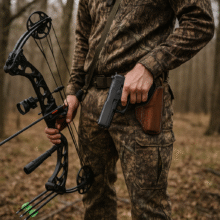Gun Ownership by State: Understanding the Laws and Regulations Across the United States

Table of Contents
- Table of Contents
- Introduction
- 2. Permissive States: Easy Access to Firearms
- 3. May-Issue States: Meeting Specific Requirements
- 4. Shall-Issue States: Meeting Criteria for Permits
- 5. Unrestricted States: No Specific Regulations
- 6. Restricted States: Stricter Gun Control Laws
- 7. Additional Considerations: Local Laws and Regulations
- 8. Conclusion
- FAQs (Frequently Asked Questions)
Table of Contents
Introduction
Gun ownership laws and regulations in the United States vary from state to state, reflecting the diverse attitudes and perspectives on firearms across the nation. Whether you’re considering owning a firearm for self-defense, recreational shooting, or other purposes, understanding the specific laws in your state is essential. In this comprehensive guide, we will explore the different categories of gun ownership laws by state, highlighting examples from each category and shedding light on additional considerations. So, let’s navigate the complex landscape of gun ownership laws in the United States.
2. Permissive States: Easy Access to Firearms
In permissive states, the laws and regulations surrounding gun ownership are generally more relaxed, making it easier for individuals to obtain firearms. Here are some examples:
2.1 Alaska
Alaska is known for its permissive gun laws, with a strong emphasis on the right to bear arms. In Alaska, residents enjoy the freedom to purchase and possess firearms without the need for a permit or license. Background checks are not required for private sales, and there are no restrictions on magazine capacity or certain types of firearms.
2.2 Arizona
Arizona is another state with permissive gun laws, embracing the rights of gun owners. In Arizona, residents can purchase firearms without a permit or license. Background checks are conducted for sales from licensed dealers, but private sales do not require a background check. Arizona also allows open carry without a permit for individuals aged 18 and older.
2.3 Wyoming
Wyoming is often recognized as a state with a favorable environment for gun owners. In Wyoming, residents have the freedom to purchase, possess, and openly carry firearms without a permit. The state does not require background checks for private sales, and there are no restrictions on magazine capacity or assault weapons.
2.4 Texas
Texas has a strong gun culture and permissive gun laws. In Texas, residents aged 18 and older can purchase and possess firearms without a permit. Texas allows open carry of long guns without a permit and concealed carry with a permit. Background checks are required for purchases from licensed dealers, but private sales do not require a background check.
3. May-Issue States: Meeting Specific Requirements
In may-issue states, authorities have the discretion to grant or deny permits for gun ownership based on specific requirements. Here are some examples:
3.1 California
California is known for having stricter gun control laws compared to other states. In California, individuals must obtain a Firearm Safety Certificate (FSC) and undergo a background check to purchase firearms. The state operates on a may-issue basis for concealed carry permits, requiring applicants to demonstrate a justifiable need, such as showing a specific threat or working in certain professions.
3.2 New York
New York also operates on a may-issue basis for concealed carry permits. Applicants must demonstrate a proper cause or a justifiable need to carry a concealed firearm. The decision is left to the discretion of local authorities, and requirements can vary across different counties.
3.3 Maryland
Maryland requires individuals to obtain a Handgun Qualification License (HQL) before purchasing a handgun. Applicants must complete a background check, fingerprinting, and training courses to qualify for the HQL. Maryland operates on a may-issue basis for wear and carry permits, which require applicants to demonstrate a good and substantial reason to carry a concealed firearm.
4. Shall-Issue States: Meeting Criteria for Permits
Shall-issue states have laws that require authorities to issue permits if the applicants meet specific criteria. Here are some examples:
4.1 Florida
Florida is a shall-issue state, where individuals can obtain a concealed carry permit if they meet the eligibility requirements. Applicants must complete a background check, undergo fingerprinting, and complete a firearms training course approved by the state.
4.2 Georgia
Georgia is also a shall-issue state for concealed carry permits. Applicants must meet the eligibility requirements, which include being at least 21 years old, completing a background check, and providing proof of firearms training.
4.3 Pennsylvania
Pennsylvania operates as a shall-issue state, where residents can obtain a concealed carry permit if they meet the specified criteria. Applicants must be at least 21 years old, complete a background check, and complete a certified firearms training course.
5. Unrestricted States: No Specific Regulations
Unrestricted states have no specific laws or regulations regarding gun ownership. Here are some examples:
5.1 Vermont
Vermont is often cited as an unrestricted state, as it has no specific laws or permits required for gun ownership or concealed carry. Vermont residents aged 16 and older can legally possess and carry firearms without a license or permit.
5.2 Alaska (Residents Only)
In addition to being permissive, Alaska is considered an unrestricted state for its residents. Alaska residents aged 21 and older can possess and carry firearms without a permit or license.
5.3 Arizona (Residents Only)
Similar to Alaska, Arizona is an unrestricted state for its residents. Arizona residents aged 21 and older can possess and carry firearms without a permit or license.
6. Restricted States: Stricter Gun Control Laws
Restricted states have more stringent gun control laws and regulations. Here are some examples:
6.1 California
California has some of the strictest gun control laws in the country. The state requires background checks for all firearm sales, including private transactions. It has restrictions on assault weapons, high-capacity magazines, and requires a “good cause” to obtain a concealed carry permit.
6.2 New York
New York has implemented various gun control measures, including background checks for all firearm sales and a ban on certain assault weapons. The state requires a pistol permit for handguns, and obtaining a concealed carry permit can be challenging, with stringent requirements varying by county.
6.3 New Jersey
New Jersey has strict regulations on firearm ownership. The state requires permits to purchase handguns, which involve background checks and fingerprinting. New Jersey also has restrictions on assault weapons and high-capacity magazines, and obtaining a concealed carry permit can be difficult.
6.4 Massachusetts
Massachusetts has some of the toughest gun laws in the United States. The state requires a Firearms Identification (FID) Card or License to Carry (LTC) to possess firearms, including long guns and handguns. Massachusetts has restrictions on assault weapons, high-capacity magazines, and imposes stringent licensing requirements.
7. Additional Considerations: Local Laws and Regulations
In addition to state laws, it’s crucial to consider local laws and regulations regarding gun ownership. Cities, counties, and other local jurisdictions may have their own restrictions, permits, or additional requirements. It’s important to be aware of and comply with these local laws to ensure legal and responsible gun ownership.
8. Conclusion
Gun ownership laws and regulations in the United States vary significantly from state to state. It’s crucial for individuals to understand and abide by the laws in their specific state and locality. Whether you reside in a permissive state with easy access to firearms, a may-issue state with specific requirements, or a restricted state with stricter regulations, it’s important to stay informed and comply with the applicable laws.
Always consult official government sources or legal professionals to ensure you have the most accurate and up-to-date information regarding gun ownership laws in your state and locality.
FAQs (Frequently Asked Questions)
Q1: Can gun ownership laws change in a state over time?
A1: Yes, gun ownership laws can change in states over time. It’s important to stay updated with any new legislation or amendments that may impact gun ownership regulations.
Q2: Can I transport firearms across state lines?
A2: Transporting firearms across state lines requires compliance with federal and state laws. It’s essential to familiarize yourself with the specific regulations of the states you are traveling to and through.
Q3: Are there federal laws that govern gun ownership in the United States?
A3: Yes, federal laws, such as the Gun Control Act of 1968 and the National Firearms Act, establish certain regulations on firearms, including background checks, firearms sales, and restrictions on specific firearms.
Q4: Can I legally own a firearm if I have a criminal record?
A4: Federal and state laws generally prohibit individuals with certain criminal records from owning firearms. It’s essential to understand the laws in your jurisdiction and consult legal professionals for guidance if you have a criminal record.
Q5: Can non-U.S. citizens legally own firearms in the United States?
A5: Non-U.S. citizens have restrictions on firearm ownership in the United States. The specific regulations vary based on immigration status and other factors. It’s important to consult legal professionals or government sources for accurate information on firearm ownership for non-U.S. citizens.







